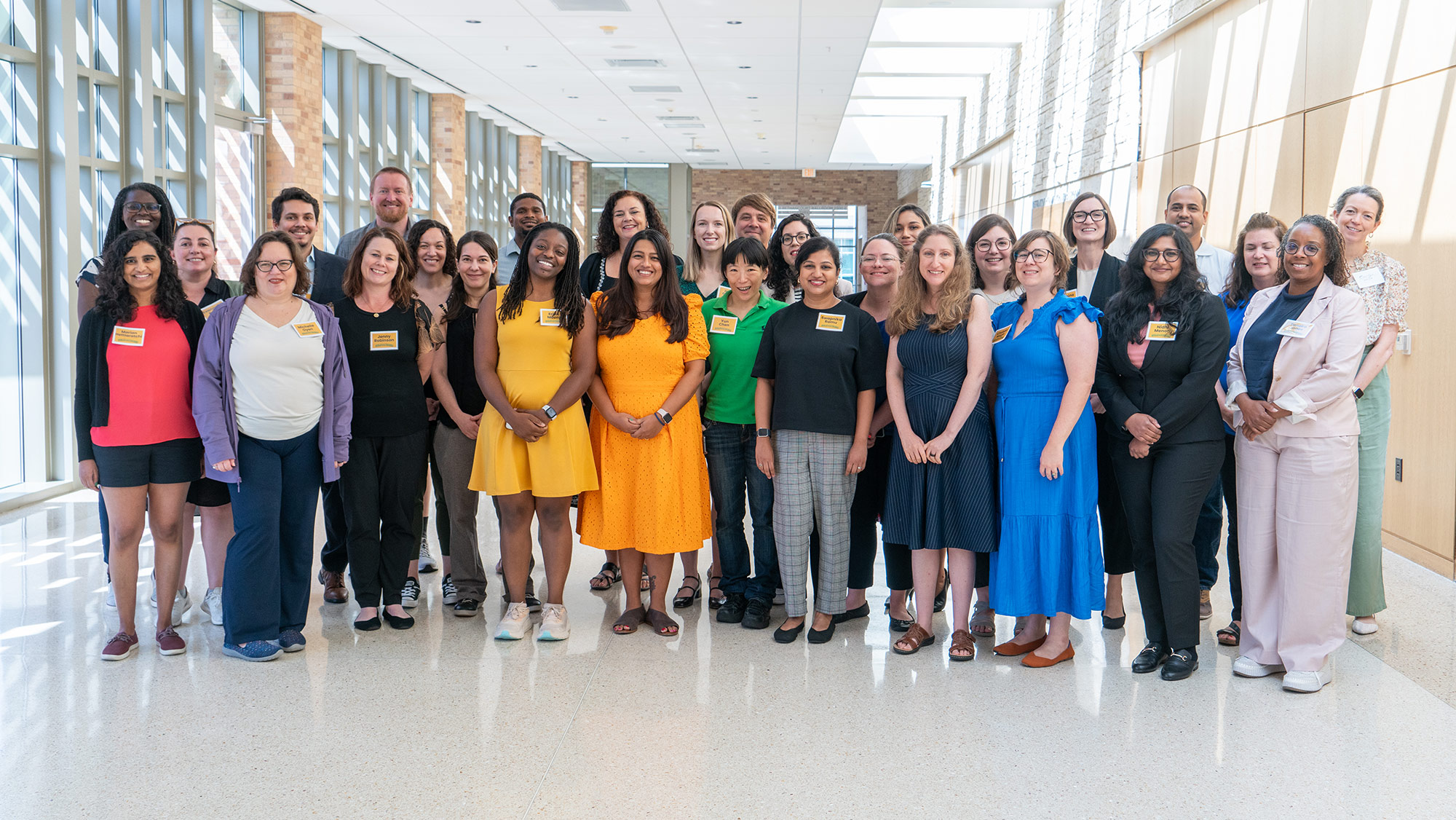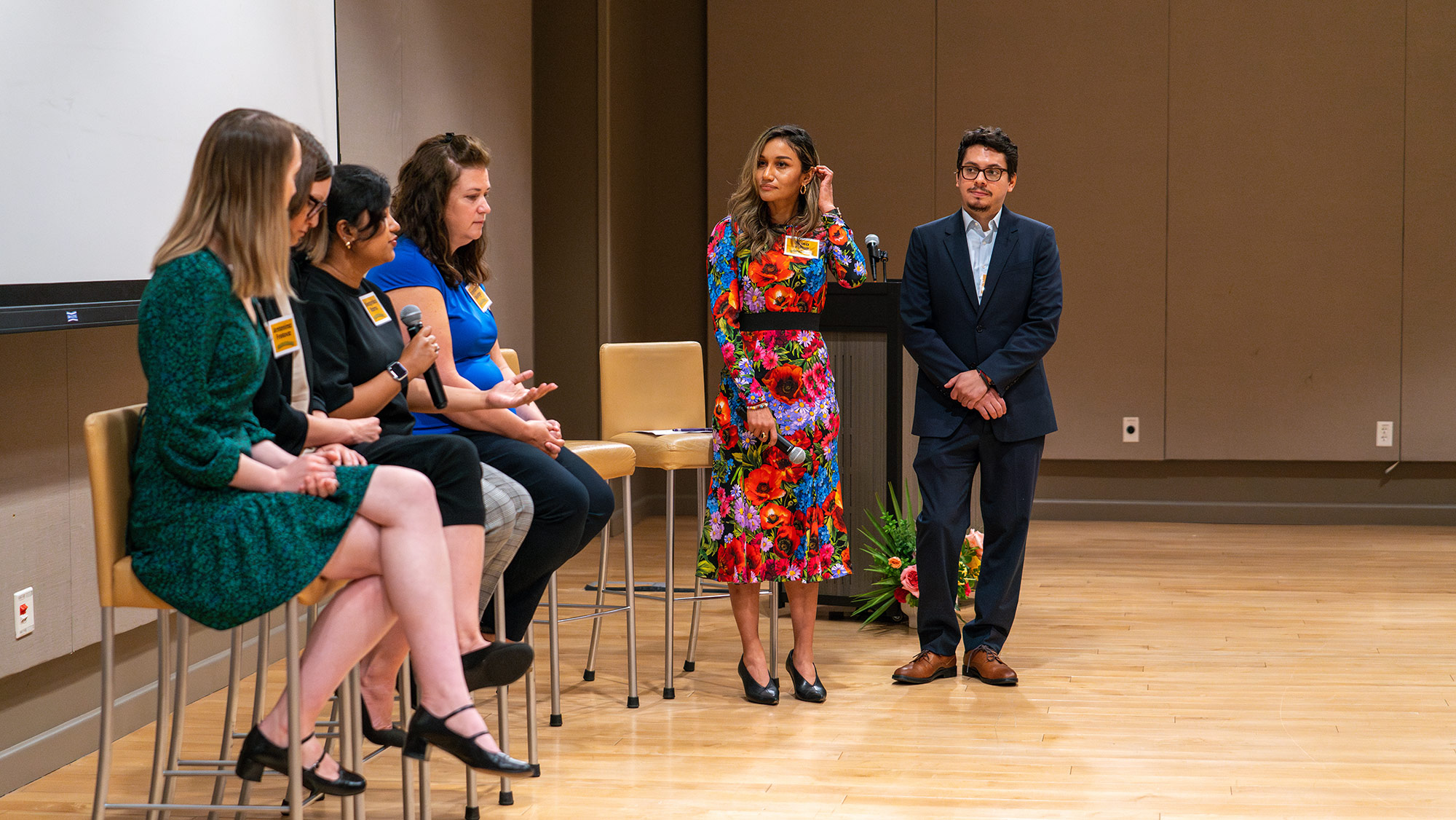
In response to a White House initiative to improve funding and research on women’s health, the National Science Foundation (NSF) sponsored its first ElevateHER (Engineering Innovations for Women’s Health Discovery) Conference at Texas A&M University in early August.
Chaired by Dr. Shreya Raghavan, assistant professor in the Department of Biomedical Engineering at Texas A&M, and Dr. Erika Moore, assistant professor at the University of Maryland, the conference aimed to identify opportunities for engineering research collaboration and discovery in women’s health.
“ElevateHER brings engineers together to innovate in the women's health space,” Raghavan said. “One of our goals was to help engineers apply themselves to a broad definition of women’s health: it is all conditions that disproportionately impact women across their life span, and not just reproductive health. So many things are women's health, but they're not considered that way, like cardiovascular and bone health and sex differences in immunity.”
Additionally, the conference centered around creating action items to sustain the conversation on women’s health beyond ElevateHER.
“There's a lot of momentum,” she said. “A big part of this conference is not just holding the conference, but sustaining that momentum, and continuing to catalyze these innovations.”
Keynote speakers included Dr. Michal Tal, principal scientist at the Massachusetts Institute of Technology, and former Texas A&M Ph.D. student Dr. Jenny Robinson ’14, now the endowed chair in Women’s Sports Medicine and Lifetime Fitness at the University of Washington. Tal discussed her research in immunoengineering while Robinson focused on the sex differences in connective tissue regeneration after injury.

“We're very interested in using engineered environments to understand how cells process mechanical strain and how that might be different in male and female cells, including in conditions with fluctuations in hormone signaling, which happen frequently in the female body,” Robinson said. “Even when considering human variability as every human performs differently, we're seeing clear differences between biological male and female cells, and how they respond to mechanical and hormonal cues. While the impact of biological sex has not been commonly considered, it’s important.”
The event featured two panel discussions: one on the access and visibility of biomedical engineering technologies in women’s health and another on synthesizing future steps.
Dr. Juan Gnecco, an assistant professor from Tufts University and a panel moderator, has been researching the uterine endometrium since 2013 and expressed excitement about the merging of engineering and women’s health.
“The world of engineering has many sub-disciplines and the world of women's health has many sub-disciplines, so a place where there can be that cross-pollination across needs, ideas and solutions is the key facet of this type of conference,” Gnecco said. “It's to establish the connections and unify those techniques, those methods, those goals, to try to merge those fields.”
Panelist Dr. Stephanie George, program director for Engineering of Biomedical Systems at the NSF, highlighted the need for women’s health representation. George said she asked Raghavan to lead the conference due to the lack of focus in this area at the NSF.
One of our goals was to help engineers apply themselves to a broad definition of women’s health: it is all conditions that disproportionately impact women across their life span, and not just reproductive health.
George encouraged researchers interested in women’s health to pursue their ideas and proposals.
“Much of what NSF supports is investigator-driven, so we can't give awards that impact women's health if those proposals don't come in,” she said. “Submit proposals. Many core programs, like mine, will accept proposals with impact in women’s health if the scientific or engineering innovation aligns with the program. Don't be afraid to submit the proposals.”
Round table discussions at the conference covered a variety of topics like the uterus and gynecology, female cancers, immunity, sex and demographic determinants, cardiovascular and musculoskeletal biology, maternal health, transitions with age, and outreach and advocacy.
Next steps for Raghavan and Moore include publishing a report on actions from stakeholders to catalyze innovations and setting up channels of communication to continue the collaborative momentum built by the conference.
“I'm feeling hopeful because the number of people that care and want to invest their time, their energy, and their resources into this is a big deal,” Raghavan said. “For every knowledge gap or urgent need identified, there were three or more positive engineering-based strategies that came out. It was amazing. I feel both grateful and hopeful for the future of women’s health engineering.”